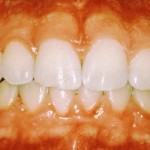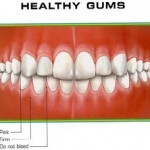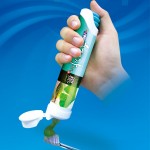Third molars erupt in the mouth when a person reaches the age of 17-21 years, when most individuals become adults, hence the term “wisdom teethâ€. However, not everyone has wisdom teeth, and not having one should not be a case for concern. According to medterm.com, 7.6% of the population does not have wisdom teeth all their life. On the other hand, some appear to not have them, but they are actually embedded within the jaw due to lack of space to erupt. Hence a visit to the dentist is essential to check whether your tooth is missing, or whether there are problems involved in its eruption like impaction and infection. Here are some reasons that indicate you should have your tooth pulled out: Continue reading
Monthly Archives: September 2011
How to Clean Ceramic Teeth
The process of using ceramic materials to replace or repair teeth is not new. According to the Indiana University School of Dentistry, the first porcelain denture tooth was introduced in 1789. Of the materials used today for tooth restoration, ceramic porcelain comes closest to duplicating the color and translucency of natural teeth. Ceramic teeth are, however, more expensive than other materials and can add up to a major investment. Protect your investment and help your ceramic teeth last longer by cleaning them properly. Continue reading
7 Tips for Kids Teeth
Many people have the misconception that primary teeth are not as important as permanent teeth, as the former will eventually be replaced by the latter. This is not true, as primary teeth serve many different functions, some of which contribute to the health and aesthetics of the permanent dentition. For example, they play an important role in chewing food and maintaining space for the eruption of the permanent teeth. Also, like adults, children will feel better about themselves if they have a nice smile, which leads to the development of a social well-being as they grow up.
Caries spread faster in primary teeth because they have thinner enamel, hence it is important that dentition is well-attended to from a young age. Here are some tips that you may find useful in caring for your child’s dentition: Continue reading
Questions and Answers : Gums
What are gums?
Gums are also known as gingival. They are part of oral tissues which support our teeth and cover the bone. Â  Continue reading
Continue reading
How to Fix a Stuck Toothpaste Pump
Toothpaste pumps are handy gadgets, and are also known as automatic toothpaste dispenser. They can pump out a measured toothpaste blob just right for a toothbrush. A toothpaste pump can be used with one hand, making it easy for people in a hurry, for children and for people with hand-coordination problems. Unlike a tube, it is made of a hard plastic and functions by pressing a knob on top rather than squeezing the tube.It was developed by someone in Germany, however, whom by is unknown, but it is known that there were a number of technical difficulties with the item before the item was perfected, these included storing the toothpaste in the tube without it drying out or indeed becoming too wet and runny, and perfecting the function of the tube, and ensuring it works correctly. Henkel were the first known in the world to sell their toothpaste in a pump. Sometimes the pumps quit working even if the pump tube still has toothpaste. With these simple steps you can get the toothpaste pump working again. Continue reading
How to Care for Gums and Teeth
Our gums and teeth play an important role in our daily lives.
Without them, we will not be able to enjoy varieties of food or look good, thus it is very important to take care /maintain good oral hygiene. Continue reading
Continue reading
How to Cure Smokers Lips
Before we start discussing about lip care for habitual smokers let us first have look at what smoking does to your mouth and lips. Smoking is not only bad for your health, it spoils your facial beauty too by causing lip darkening, dry skin and it also sometimes cause what is commonly known as smoker’s lips. Smoker’s lip refers to those fine lines around the mouth. These lines, even though are not always due to smoking, the latter is responsible to a great extent for those drawstring like lines around the mouth. It gives your mouth a puckered look and makes you look much older. Now let us see what other damage smoking does to our health and looks. Continue reading
Fluoride Dental Treatments
Lifelong protection against tooth cavitiesresults from continuous use of low-concentration fluoride. When communal-water supplies are available, water fluoridation clearly represents the most effective, efficient, and economical of all known measures for the prevention of tooth decay. Unfortunately, fluoride in water is available to only about two-thirds of the population. Thus it is obvious that additional measures by the dental profession are needed to provide greater protection against cavities. Continue reading
How Does Plaque Affect the Teeth?
What is dental plaque?
Dental plaque is a biofilm (consists of bacteria, saliva )Â which is found on tooth surface. It is normally pale yellow in color and initially can be scraped/removed by tooth brushing and flossing. Continue reading
How to Design a Dental Office
One of the most valuable and lasting improvements that any dentist can contribute to a successful practice is an investment in great office design. Whether remodeling an existing office or creating a brand new facility from scratch, there are several essential elements to focus on in designing an office that will help create a more productive, comfortable, quiet and user-friendly practice. There are many distinct styles of practice. Clearly, dental office design is an individual matter based on one’s needs and budget. Nevertheless, the following key issues are common to any office: esthetics; the empowerment of key personnel; controlling noise; and creating rapid access to key equipment and materials. Continue reading


